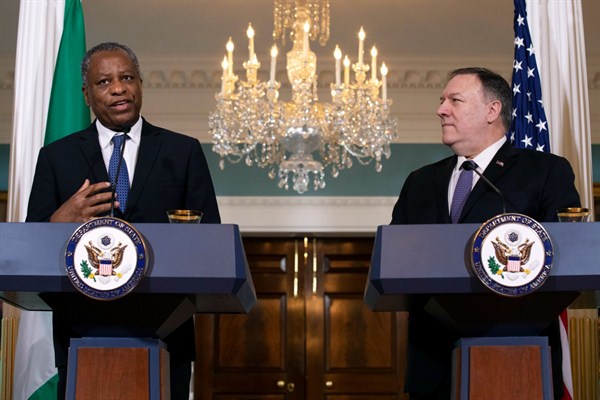The Trump administration provoked another international outcry when it announced late last month that it was adding six new countries to its list of nations that face broad travel restrictions to the United States: Eritrea, Kyrgyzstan, Myanmar, Nigeria, Sudan and Tanzania. The expansion of the travel ban, which President Donald Trump first issued as an executive order just days after his inauguration in January 2017, will take effect on Feb. 22.
The inclusion of Nigeria, Africa’s most populous country and its largest economy, generated immediate outrage among many observers. But the reaction from the Nigerian government was more muted than expected. While Eritrea’s foreign minister, for example, said the ban was “unacceptable,” his Nigerian counterpart merely said he was “disappointed.” Nigerian authorities may be calculating that a soft touch with the Trump administration will prove more effective in getting the travel ban lifted than a defiant display of disapproval.
Stressing his desire for “productive relations” with the U.S., President Muhammadu Buhari said Nigeria would address the security issues that the Trump administration claimed as justification for the new travel restrictions. Last week, Foreign Minister Geoffrey Onyeama led a Nigerian delegation to Washington for a meeting of the U.S.-Nigeria Binational Commission, which the State Department bills as “the premiere platform of engagement” to expand cooperation between the U.S. and Nigeria. After meeting with Secretary of State Mike Pompeo, Onyeama told reporters that Nigeria was “somewhat blindsided” by the travel ban announcement. But he added that it was “very gratifying” to speak with Pompeo directly “and to understand more clearly the reasoning.” Neither Buhari nor Onyeama seemed to want to add to the tensions generated by the travel ban.

